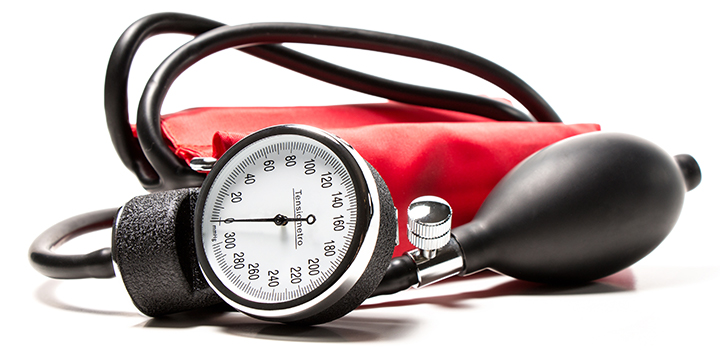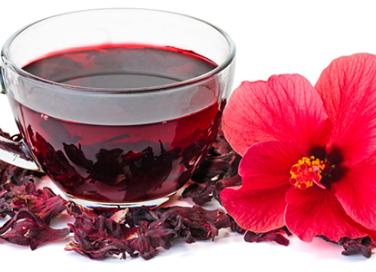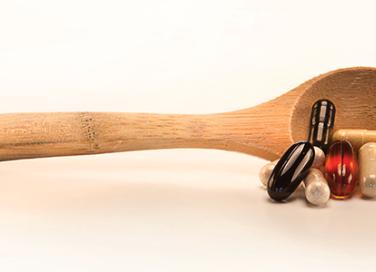


Sign-up for {N}power to get exclusive discounts, newsletters, members-only features, and more!


Doctors admonish us to lower our blood pressure, but why? What exactly does high blood pressure do to our bodies? As it turns out, quite a lot—it significantly increases the risk of stroke, heart disease, kidney disease, and even dementia. The worst part about hypertension is that you’re not even aware that it’s happening—there are no apparent signs that it may be slowly killing you. It’s called the silent killer for good reason.
Considering that there are no symptoms of high blood pressure and nearly 1 in 3 American adults has the condition it is important to regularly have your blood pressure checked. African American men and women are especially at risk, with rates among the highest of any population in the world. Think you’re too young to have hypertension? Think again. A recent study took blood pressure readings from more than 14,000 men and women between the ages of 24 and 32 and found that 19 percent of them had high blood pressure—and the majority was unaware they had the condition. Risk factors for developing high blood pressure include smoking, a high-sugar diet, stress, and having diabetes.
A person’s ideal blood pressure ranges from 90/60 to 120/80 mm Hg. High blood pressure is usually defined as anything consistently above 140/90 mm Hg. In-between numbers, from 121/81 mm Hg to 139/89 mm Hg, are considered pre-hypertension.

Adopting a Mediterranean-style diet may be one of the best ways to manage your blood pressure, according to numerous high-profile studies. For example, adopting a Mediterranean diet combined with either extra olive oil or nuts can lead to substantial reductions in blood pressure.
The Mediterranean diet is rich in olive oil, fish, fruits and vegetables, and whole grains. Traditional Mediterranean cultures also consumed full-fat butter, dairy, lamb, and an abundance of spices including rosemary, oregano, sage, fennel, cloves, and cumin. These foods provide a cornucopia of nutrients—health-promoting omega-9 and omega-3 fats, antioxidants, and fiber—that have been shown to consistently reduce blood pressure.
Beetroot is rich in nitrate, which the body converts to nitric oxide—a substance that promotes the relaxation of blood vessels. Dozens of human studies have shown that beetroot juice or beetroot “shots” significantly improve blood vessel tone and lower blood pressure.
British researchers asked 68 people to drink a cup of either beetroot juice or a placebo daily. Then the researchers switched the drinks, so everyone at some point consumed the biologically active beetroot and the placebo. The researchers reported that beetroot juice lowered blood pressure, while the placebo did not.
Drinking hibiscus tea (Hibiscus sabdariffa) every day sounds almost too simple to be true, but it’s a very effective natural means of reducing blood pressure. An analysis of five studies, including 390 people, reported significant decreases in systolic and diastolic blood pressure after drinking hibiscus tea. Supplements appear to work just as well according to one study. Researchers gave 250 mg of hibiscus extract to patients with high blood pressure. After four weeks, people taking hibiscus had a significant 12 percent reduction in both systolic and diastolic blood pressure, similar results to drinking hibiscus tea.

Plenty of research has shown that a magnesium deficiency is a factor in hypertension, along with arrhythmias and coronary artery disease, so it shouldn’t come as a surprise that magnesium supplements can lower blood pressure. The mineral works with calcium, sodium, and potassium to regulate blood pressure. For example, calcium contracts the heart and blood vessels, whereas magnesium helps relax them.
Researchers at the Center for Magnesium Education & Research in Hawaii analyzed seven studies, including 135 subjects, and confirmed that magnesium supplements reduced both systolic and diastolic blood pressure. Another study investigated magnesium levels in people with and without prehypertension. People with prehypertension had low levels of magnesium, but no other apparent differences with healthy subjects. Take: 200-400 mg of elemental magnesium daily. A higher dose might have a laxative effect.
People with low blood levels of vitamin D have a higher risk of heart disease and, specifically, hypertension. In a study published in the journal Circulation, people with inadequate levels of vitamin D (less than 15 ng/mL) were twice as likely to have hypertension, compared with people who had the highest levels of the vitamin. In a 2016 study, researchers focused on seniors because they have a particularly high risk of vitamin D deficiency—blood levels less than 15 ng/mL. They gave 36 seniors 1,000 IU of vitamin D3 or placebos daily for six weeks. On average, people taking vitamin D had a 20 mmHg decrease in systolic blood pressure and a 7 mmHg decrease in diastolic blood pressure, compared with the placebo group. Take: 2,000 to 5,000 IU daily.
The body efficiently converts this amino acid to L-arginine, which increases nitric oxide. A lack of nitric oxide interferes with healthy blood vessel tone, contributing to hypertension and cardiovascular disease. Both arginine and citrulline have been shown to improve nitric oxide production and cardiovascular function; however, because of the different ways in which they are metabolized by the body, citrulline is more effective at increasing and maintaining plasma and tissue levels of L-arginine and enhancing nitric oxide production. Take: 1,000 mg of L-citrulline, three to four times daily.

Simply making time for a daily walk—fast or leisurely—may be the easiest lifestyle change for reducing blood pressure. We all know that exercise is good for us, and walking helps reduce blood sugar and insulin levels, which have a bearing on blood pressure. Researchers have even shown that walking can lower blood pressure among people with hypertension, elevated cholesterol, and type-2 diabetes. The benefits of walking might be increased by combining it with a low-salt diet. Tip: If you’re out of shape, start slowly. Week after week you’ll be able to increase your distance and speed.
Numerous studies have confirmed that meditation is an effective way to lower blood pressure anywhere from 3 to 10 mmHg. Sound a little too complicated to learn? Then try guided visualization. It’s easy to learn, and is almost like daydreaming. Basically, sit comfortably in a chair with your feet on the floor and your hands resting on your legs. Close your eyes and visualize a place that made you feel relaxed. Maybe it was sitting on the beach or stopping on a hiking trail to look at the trees. Simply try to relive that experience. Make the time to meditate for 20-30 minutes several times a week.
We live in a stressful world and stress is a contributor to high blood pressure, but something as simple as keeping a gratitude journal can lower stress and blood pressure. According to Robert A. Emmons, professor of psychology at UC Davis and a leading expert on the science of gratitude, practicing gratitude can have dramatic effects on a person’s health, including reducing levels of stress hormones and lowering blood pressure. Keeping a gratitude journal can be as simple as jotting down three to five things you are grateful for each day.
Physicians are often quick to prescribe medications for high blood pressure, but drugs often cause unpleasant and potentially dangerous side effects. Nutrition, supplements, and lifestyle changes are extraordinarily safe and effective for lowering blood pressure, and they often come with added side benefits.



Sign-up for {N}power to get exclusive discounts, newsletters, members-only features, and more!